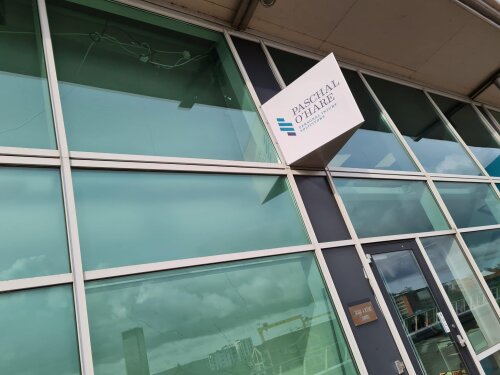Best Wrongful Death Lawyers in Belfast
Share your needs with us, get contacted by law firms.
Free. Takes 2 min.
List of the best lawyers in Belfast, United Kingdom
About Wrongful Death Law in Belfast, United Kingdom
Wrongful death claims arise when a person dies because of another person or organisation's wrongful act, neglect, or breach of duty. In Belfast, as in the rest of Northern Ireland, these are civil claims brought to obtain compensation for the financial and certain non-financial losses suffered by the deceased person's family or dependents. Civil claims operate separately from any criminal proceedings or coroner inquest - it is possible for a civil claim to succeed even if there is no criminal conviction, because civil cases use a lower standard of proof.
Cases that commonly lead to wrongful death claims include road traffic collisions, workplace accidents, medical or clinical negligence, public liability incidents, and deaths caused by defective products. The claim process involves identifying the correct legal basis for the claim, proving liability on the balance of probabilities, and assessing the losses suffered by the dependents or estate.
Why You May Need a Lawyer
Bringing a wrongful death claim is often complex, emotional, and time-sensitive. A lawyer experienced in fatal-accident and personal-injury work can help in many ways:
- Establishing liability - proving negligence, breach of statutory duty, or other legal fault.
- Identifying who can sue - only certain people or the deceased's personal representative may bring claims under the applicable law.
- Calculating losses - assessing dependency claims, lost future earnings, funeral and medical expenses, and any statutory bereavement award - calculations frequently require actuarial or vocational evidence.
- Managing evidence - obtaining medical records, police reports, employer documents, vehicle data, and witness statements.
- Dealing with insurers and defendants - negotiating settlements and, where necessary, conducting litigation.
- Representing you at inquests - providing legal representation at coroner hearings to protect your interests and ensure evidence is properly presented.
- Advising on costs and funding - explaining fee arrangements, possible recoverability of costs, and whether conditional fee agreements or other funding options are available.
Local Laws Overview
Key legal and procedural points that are particularly relevant in Belfast and Northern Ireland include:
- Governing legislation - Wrongful death claims in Northern Ireland are pursued under the local fatal-accidents legislation and general civil law principles. These laws set out who can bring a claim and the types of damages that may be recovered.
- Who may bring a claim - Typically a deceased person's personal representative brings a claim for losses the deceased incurred before death, while dependents or certain close relatives can bring claims for bereavement and dependency. Eligibility rules differ from other parts of the UK, so local legal advice is important.
- Time limits - There are strict time limits for bringing claims. In most cases you will need to start proceedings within a statutory period - usually three years from the date of death or from the date when the claimant knew of the cause of action - but there are important exceptions. For children and persons lacking capacity different rules may apply.
- Coroner inquests - Sudden or unexplained deaths will often be investigated by the Coroner's Service for Northern Ireland. An inquest is a fact-finding process and does not determine civil liability, but its findings and evidence can be relevant to a civil claim.
- Standard of proof - Civil wrongful death claims use the balance of probabilities standard, which is lower than the criminal standard beyond reasonable doubt.
- Types of recoverable loss - Compensation commonly covers financial dependency, loss of future support, funeral expenses, reasonable medical expenses, and a statutory bereavement award for eligible relatives. The deceased's estate may also be able to claim for pain and suffering endured before death and for lost earnings to the estate.
- Interaction with criminal proceedings - A criminal prosecution for an act causing death is separate from a civil claim. A civil claim can proceed whether or not there is a criminal conviction, although outcomes in one forum can affect strategy in the other.
Frequently Asked Questions
Who can bring a wrongful death claim in Belfast?
Claims are usually brought either by the deceased person's personal representative or by certain dependents and close relatives. The precise categories of eligible claimants are set out in Northern Ireland's fatal-accidents legislation. If you think you may be entitled to bring a claim, seek legal advice promptly to confirm your status.
How long do I have to start a claim?
There are strict limitation periods. In most cases, the statutory period is three years from the date of death or from the date the claimant became aware of the cause of action. Special rules may apply for children or those without mental capacity, and there can be exceptions in exceptional circumstances. Early legal advice is essential to preserve your rights.
What kinds of compensation can I recover?
Compensation can cover financial losses such as lost financial support, funeral costs, reasonable medical and caring expenses, and other financial dependency losses. There is also typically a statutory bereavement award for certain close relatives. The deceased's estate may pursue claims for grief endured before death and for lost earnings belonging to the estate.
Do I have to wait for the coroner's inquest to finish before bringing a civil claim?
Not necessarily. Inquest hearings are separate from civil proceedings. Sometimes claimants wait for an inquest to obtain factual findings, but there is no legal requirement to delay a civil claim pending an inquest. Your solicitor will advise whether to proceed immediately or to wait, depending on the circumstances.
Will a criminal conviction help my civil case?
A criminal conviction for the person responsible for the death can be strong evidence of fault, but it is not a precondition for a civil claim. Civil courts apply a lower standard of proof, so a successful civil claim is possible even where there is no criminal conviction. Conversely, an acquittal does not prevent a civil claim.
How long will a wrongful death claim take?
Timelines vary widely. Simple cases where liability is admitted and losses are straightforward may settle within months. Complex cases involving disputed liability, multiple defendants, or detailed dependency calculations can take several years and may require a trial. Your solicitor can give an estimate based on the specifics of your case.
How are legal fees handled in wrongful death cases?
Many solicitors handle fatal-accident claims under conditional fee arrangements commonly called no-win-no-fee, or on other agreed funding terms. If you win, the defendant may be ordered to pay some of your legal costs, but arrangements vary and there may be deductions or insurance premiums to cover. Always get a clear written explanation of fees and what you might have to pay if you lose or win.
Can I claim if the death was caused by medical negligence?
Yes. Fatalities linked to medical or clinical negligence can give rise to wrongful death claims. These claims can be particularly complex and require detailed medical records and expert evidence. It is common to instruct a solicitor experienced in clinical negligence and to obtain specialist medical experts.
What evidence do I need to support a claim?
Useful evidence includes the death certificate, medical records, police or incident reports, witness statements, employer records, vehicle data, and financial documents showing dependency or loss of earnings. A solicitor will help gather and preserve evidence and may instruct experts to support the case.
What practical steps should I take immediately after a death I suspect was wrongful?
Seek immediate legal advice. Preserve documents and records related to the death - for example, medical letters, receipts for expenses, and any correspondence with insurers or employers. Obtain the coroner's contact details if an inquest is opened, and keep a note of witnesses and what they saw. Also seek practical and emotional support from family services or bereavement organisations.
Additional Resources
Organisations and bodies that can provide information, practical help, or regulatory oversight include:
- Coroner's Service for Northern Ireland - for information about inquests and procedures.
- Law Society of Northern Ireland - for finding solicitors and guidance on legal services.
- Public Prosecution Service for Northern Ireland - for information about criminal proceedings in fatal cases.
- Citizens Advice - for general guidance on rights and processes following a death.
- Cruse Bereavement Care - for emotional and bereavement support.
- Action for Victims and similar local support groups - for help when a death involves crime or serious injury.
- Road safety charities and workplace safety agencies - for information and support following road traffic or workplace fatalities.
Next Steps
If you believe you have a wrongful death claim or you are unsure what to do next, follow these practical steps:
- Get legal advice promptly - book an initial consultation with a solicitor experienced in fatal-accident and clinical-negligence matters in Northern Ireland.
- Preserve evidence - keep medical records, bills, receipts, police reports, photographs, and any correspondence connected to the death.
- Note witnesses - record names and contact details of anyone who saw the incident or can speak about the deceased's financial arrangements and dependency.
- Register the death and follow coroner instructions - if the coroner opens an inquiry, note dates and obtain copies of any findings when available.
- Gather financial information - collect payslips, bank statements, pension details, household budgets, and evidence of contributions made by the deceased.
- Consider support - contact bereavement organisations for emotional help and practical guidance while you deal with legal and administrative tasks.
- Ask about funding and costs - at your first meeting, ask a solicitor about likely costs, funding options, and how fees will be handled.
Early action helps protect legal rights and preserves evidence. A qualified solicitor will explain your options, likely timescales, and what compensation might cover in your particular circumstances.
Lawzana helps you find the best lawyers and law firms in Belfast through a curated and pre-screened list of qualified legal professionals. Our platform offers rankings and detailed profiles of attorneys and law firms, allowing you to compare based on practice areas, including Wrongful Death, experience, and client feedback.
Each profile includes a description of the firm's areas of practice, client reviews, team members and partners, year of establishment, spoken languages, office locations, contact information, social media presence, and any published articles or resources. Most firms on our platform speak English and are experienced in both local and international legal matters.
Get a quote from top-rated law firms in Belfast, United Kingdom — quickly, securely, and without unnecessary hassle.
Disclaimer:
The information provided on this page is for general informational purposes only and does not constitute legal advice. While we strive to ensure the accuracy and relevance of the content, legal information may change over time, and interpretations of the law can vary. You should always consult with a qualified legal professional for advice specific to your situation.
We disclaim all liability for actions taken or not taken based on the content of this page. If you believe any information is incorrect or outdated, please contact us, and we will review and update it where appropriate.














